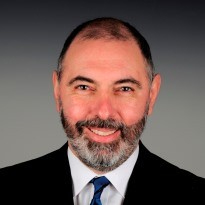The Center for Autism
"They’re very nimble…."

Autism is a complex developmental disability defined by a spectrum of disorders that typically appears during the first three years of life and affects a person’s ability to communicate and interact with others. The Centers for Disease Control and Prevention estimate that autism affects 1 in every 68 births in the U.S., and that the lifetime cost of caring for a child with autism is $2.4 million.
The nonprofit Center for Autism, founded in 1955 in Philadelphia by renowned child psychiatrist Dr. Bertram A. Ruttenberg, is the oldest autism treatment center in the country. The Center offers a variety of comprehensive programs for individuals and their families. C.O.R.E. — Creating Opportunities for Relating & Engaging – is for children aged 2 to 6 so each child may improve communication, social interaction, self-regulation, and behaviors. The Social Competency Program helps children and adolescents aged 6 to 16 to identify and interpret social cues, take perspective, understand emotions and feelings, gain self-esteem, and work collaboratively with others. The Saturday Program for older teens and young adults helps promote each individual’s engagement in the community and transition to post-secondary education and/or the workplace. The Outpatient Therapy Program is for people of all ages diagnosed with an Autism Spectrum Disorder.
CEO David Maola notes that Your Part-Time Controller has been providing services for the Center for more than six years. “They came on board when all we had was a CFO, who was in charge of our financial strategy, and a staff person to do the accounts payable,” he recalls. “We needed someone in-between those two.”
Over the years, the work that YPTC has provided has varied depending on the Center’s needs and financial situation. “One of the things that’s most attractive to me about YPTC is that they’re very nimble. They’ll respond quickly with whatever you need. The way they can tailor their services is excellent.
“As the guy who has to worry about the money, another thing I like is that they’re very sensitive about what they’re billing us. They try to make it affordable,” he adds. YPTC has adjusted the number of hours of service based upon the Center’s needs and budget at any given time.
Maola also appreciates the sense of security he gets from knowing that qualified people are looking over the finances; this becomes even more important during times of transition in the finance department. “This is one thing I don’t have to worry about,” he says. “I don’t have to stay on YPTC’s back and make sure that they’re doing something right. They just know how to do it. It’s a good feeling.”





